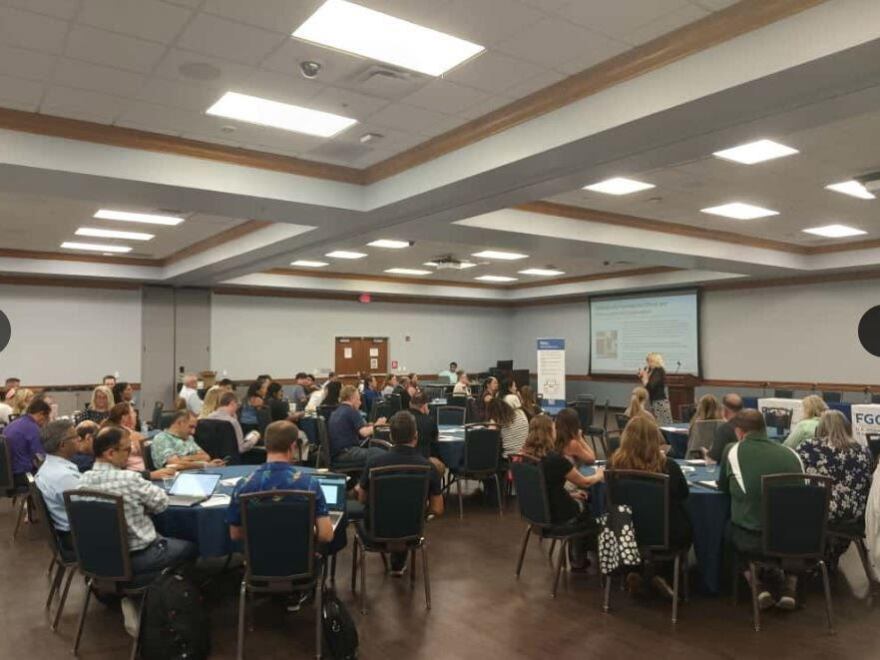Florida Gulf Coast University’s new Dendritic Institute is designed to bring artificial intelligence to students, staff and faculty. With AI’s common use in all levels of education, ethical questions form as educators see outcomes, some negative, for students.
To the institute’s ethics specialist Chrissann Ruehle, the concerns have been clearly outlined.
“We need to make sure that sensitive student information is handled securely and in compliance with regulations. Organizations need to clearly communicate about how AI is used,” Ruehle said. “Another is academic integrity. Organizations need to make sure that the approach for managing AI supports the institution's mission and values technology. Students still need to develop their critical thinking skills.”
Using applications like ChatGPT and Gemini, students can feed assignments into artificial intelligence, which can complete it for them. According to Ruehle, this can enable students and employees to not put thought behind their work and the results of the “prompt,” or input into the application. It becomes more complicated when AI “hallucinates,” or makes up, data and responses.
“There have been some studies that have shown, potentially, that heavy use of AI can impact critical thinking skills. The idea being that people can become overly reliant on the AI,” Ruehle said. “Ideally, that person then must invest the additional time performing research on the results and maybe, in some cases, fixing whatever issues popped up with false data. We humans still need to use our human intelligence.”
To face the phenomenon of AI being used tofully complete work and assignments, Ruehle believes organizations need infrastructure around AI usage that goes beyond just creating policies. She says students should have an “internal barometer” for deciding when to use AI, and that starts with K-12 education.
“There needs to be policies and administration, but ethics don’t stop there,” Ruehle said. “I think this all goes back to educating, informing, making sure that people have the right information about AI so that they can make ethical choices. With AI being so accessible outside the doors of the school, I think it's going to be even more important for us to build that moral muscle, but we have a long way to go.”
A less considered ethical question is the environmental impact of AI. Data centers, which house computers that aid artificial intelligence applications, need to be built. The increased energy use from data centers burns fossil fuels and can harm communities, as shown by Elon Musk’s Colossus in Memphis, Tennessee. Ruehle says southwest Florida is prime real estate for data centers, as it’s a coastal community surrounded by water.
Moving forward, a focus of the Dendritic Institute will be creating what Ruehle calls a responsible AI culture.
“AI is so pervasive. It’s present. It’s not going anywhere. Every organization needs to adopt it,” Ruehle said. “You need to be very proactive in building a culture that’s going to support the adoption of AI, but also maintain those ethics.”
WGCU is your trusted source for news and information in Southwest Florida. We are a nonprofit public service, and your support is more critical than ever. Keep public media strong and donate now. Thank you.







